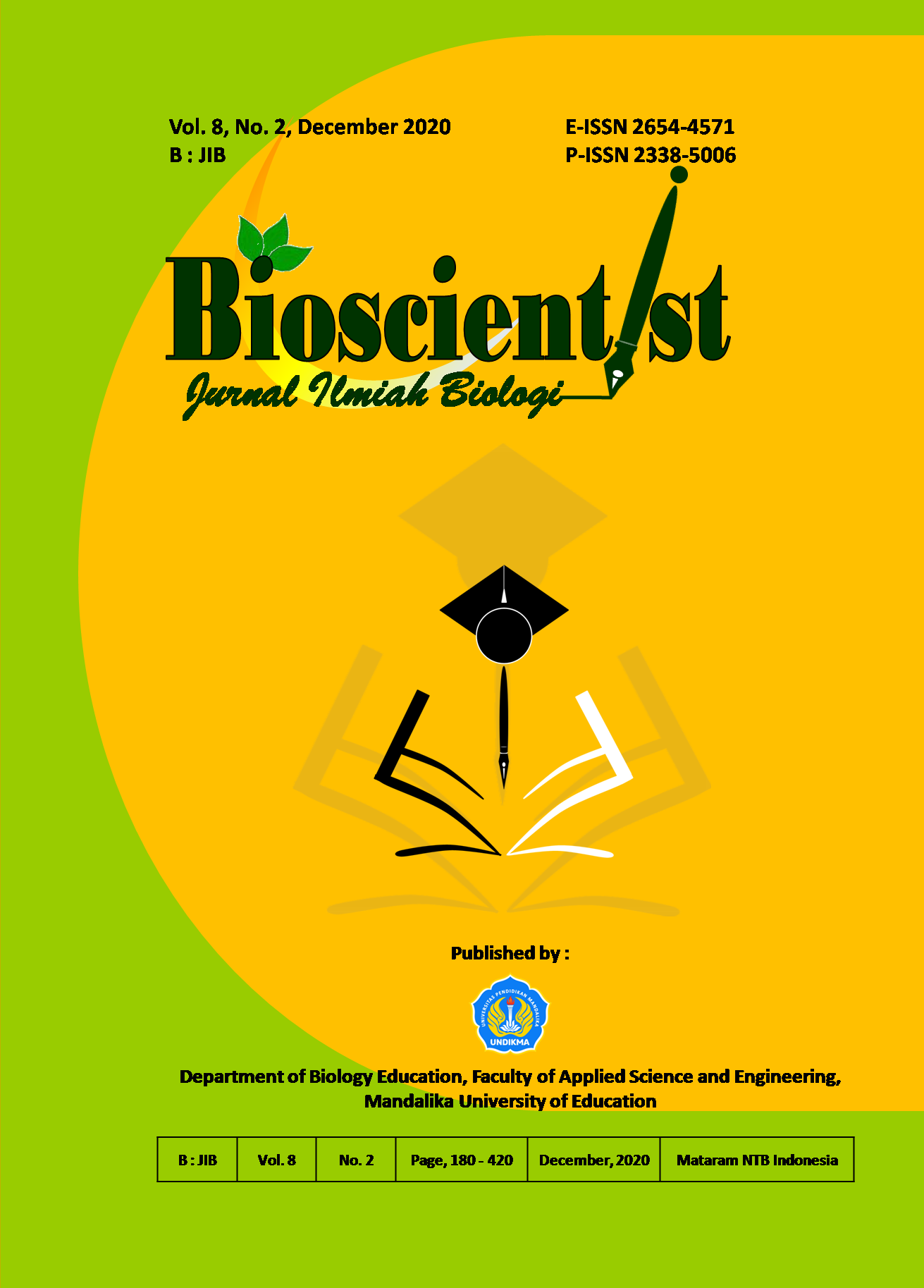Kualitas Peer Assessment sebagai Assessment Formatif
DOI:
https://doi.org/10.33394/bioscientist.v8i2.3159Keywords:
Quality, Peer Assessment, Formative Assessment.Abstract
This study aims to produce a suitable peer assessment instrument as a formative assessment. This type of research is development research, because it develops a peer assessment instrument. The development of the peer assessment instrument refers to the Borg & Gall development model which includes 10 stages, namely: 1) a preliminary study; 2) planning; 3) development of a product initiation model; 4) reviewing the initiation model of the product; 5) revision; 6) limited trials; 7) revised trial results; 8) wide-scale trials; 9) final product revision; and 10) dissemination. However, in this study only up to stage 8, while stage 9 and stage 10 were not carried out due to time and conditions that did not allow. Expert validation was carried out beforehand before limited testing and wide-scale trials in Class X Madrasah Aliyah An-Najah, Al-Halimy Education Foundation, Sesela, Gunungsari District, West Lombok Regency. The results showed that the logical validity of the peer assessment instrument was very good, with an average score of 3.7. The results of the analysis using the product moment correlation test to determine the empirical validity of the peer assessment showed that the empirical validity of the peer assessment was in the high category (0.94; 0.96; 0.97; and 0.97). Based on the results of the study, it was concluded that peer assessment was of good quality as a formative assessment.References
Adawiyah, S. R. (2013). Melatihkan Keterampilan Sosial Siswa melalui Model Pembelajaran Kooperatif Tipe NHT yang Mengintegrasikan Peer Assessment. Seminar Nasional IPA IV (pp. 219-225). Semarang, Indonesia: Fakultas Matematika dan Ilmu Pengetahuan Alam, Universitas Negeri Semarang.
Alzaid, M. J. (2017). The Effect of Peer Assessment on the Evaluation Process of Students. International Education Studies, 10(6), 159-169.
Direktorat Jenderal Guru dan Tenaga Kependidikan. (2018). Modul Manajemen Implementasi Kurikulum 2013. Jakarta: Kementerian Pendidikan dan Kebudayaan Republik Indonesia.
Indasari, N. L., Purwati, O., & Anam, S. (2019). The Impact of Peer Assessment on Students Recount Text. ETERNAL (English, Teaching, Learning, and Research Journal), 5(2), 221-238.
Nurhardini, R. (2017). Pengaruh Self dan Peer Assessment pada Materi Ekosistem terhadap Berpikir Aplikatif dan Kritis Siswa SMA. Jurnal Pendidikan Matematika dan Sains, 5(1), 69-76.
Rahmawati, I., Hartono, & Nugroho, S. E. (2015). Pengembangan Asesmen Formatif untuk Meningkatkan Kemampuan Self Regulation Siswa pada Tema Suhu dan Perubahannya. Unnes Science Education Journal, 4(2), 842-850.
Siswaningsih, W., Dwiyanti, G., & Gumilar, C. (2013). Penerapan Peer Assessment dan Self Assessment pada Tes Formatif Hidrokarbon untuk Feedback Siswa SMA Kelas X. Jurnal Pengajaran MIPA, 18(1), 107-115.
Speyer, R., Pilz, W., Kruis, J. V. D., & Brunings, J. W. (2011). Reliability and Validity of Student Peer Assessment in Medical Education: A Systematic Review. Medical Education, 33(11), 572-585.
Sudiarman, Soegimin, W. W., & Susantini, E. (2015). Pengembangan Perangkat Pembelajaran Fisika Berbasis Inkuri Terbimbing untuk Melatihkan Keterampilan Proses Sains dan Meningkatkan Hasil Belajar pada Topik Suhu dan Perubahannya. Jurnal Penelitian Pendidikan Sains (JPPS), 4(2), 658-671.
Sumarti, S. S., Harjito, & Purwinarko, A. (2015). Design A Project Based Learning and Authentic Assessment Management System. International Conference on Mathematics, Science, and Education (ICMSE 2015) (pp. 29-36). Semarang, Indonesia.
Syahrul. (2015). Analisis Konsistensi dan Validitas Asesmen Teman Sejawat oleh Mahasiswa dan Asesmen Unjuk Kerja oleh Dosen dalam Pembelajaran Praktikum pada Fakultas Teknik Universitas Negeri Makassar. Jurnal Mekom, 2(1), 73-87.
Wijayanti, T., Sukestiyarno, & Masrukhi. (2014). Pengembangan Instrumen Penilaian Pembelajaran (Implementasi Penilaian Kemampuan Berpikir Kritis dan Karakter Demokratis pada Materi Sistem Politik Indonesia dengan Metode Pembelajaran Role Playing Berbasis Konservasi. Innovative Journal of Curriculum and Educational Technology, 3(2), 30-37.













